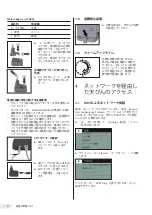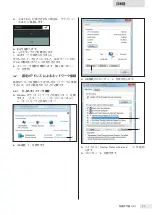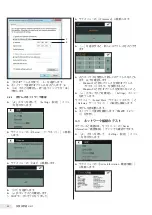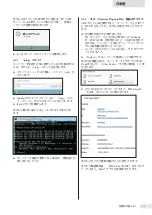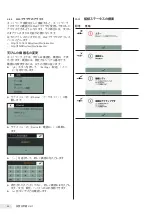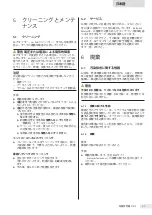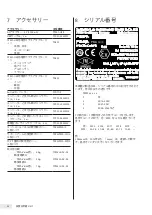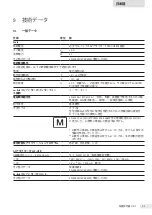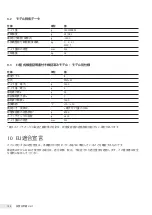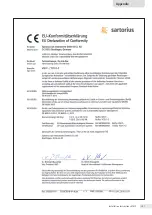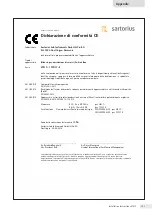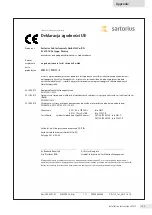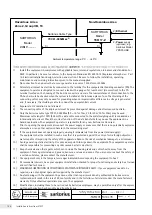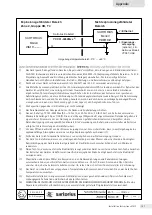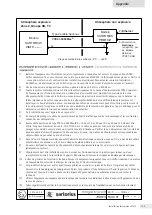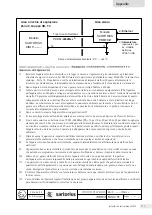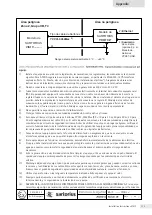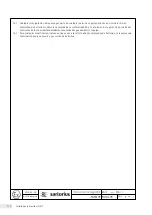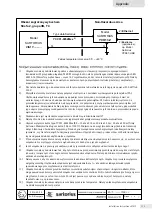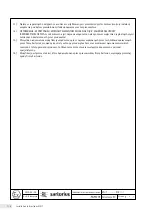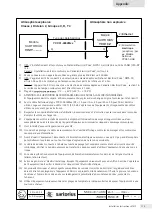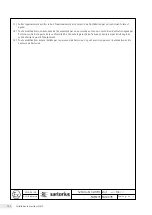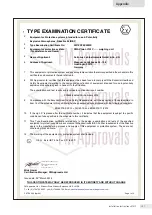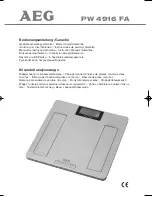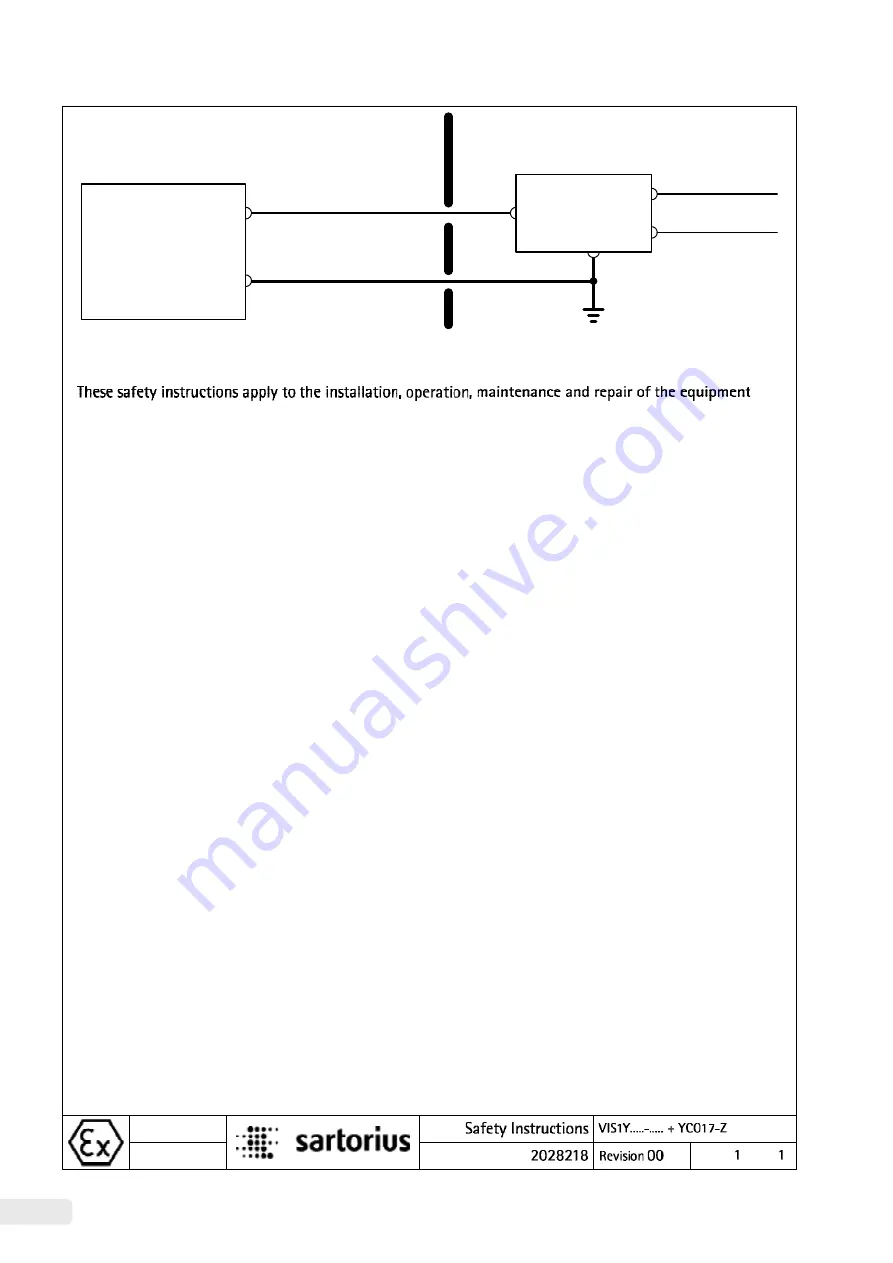
106
Installation Instructions VIS1Y
Sheet
of
2015-02-20
Dr. D. Klausgrete
1)
Install the equipment in compliance with applicable laws, rules and regulations, ordinances and standards. For
ATEX: In particular, be sure to conform to the European Standards EN 60079-14 (Explosive atmospheres – Part
14: Electrical installations design, selection and erection). Be sure to follow the installation, operating,
maintenance and servicing instructions given in the manuals supplied.
2)
No connection to any device that uses or generates in excess of 250Vrms or 250Vdc.
3)
All metal parts must be electrically connected to the terminal for the equipotential bonding conductor (PA). The
equipment operator is obligated to connect a lead with a gauge of at least 4 mm² (cross section) to the PA
terminal located on the housing of the Ex-Link converter and scale. The low resistance of this connection to the
PA bus bar must be checked when the system is installed at the intended place of use. The shielding of the
connecting cables may only be used for grounding when no impermissible difference in voltage is generated
and, if necessary, the shielding is able to conduct the equipotential current.
4)
Exposure to UV radiation is not allowed!
5)
The connecting cable of the display unit must be prevented against damage and stress caused by strain.
6)
Only the Sartorius cable type YCC01-0052Mxx (XX = 10 for 10m, 20 for 20m; 30 for 30m) may be used.
Maximum cable length: 100ft (30.5m). The data cable connected to the scale (weighing unit) is considered as
intrinsically safe circuit. Check the correct function of the data transfer before you use the equipment in a
hazardous location. The equipment operator is responsible for any non-Sartorius cables used.
7)
Prior to opening the equipment, disconnect the power supply or make sure that there is no potentially explosive
atmosphere or any other explosion hazard in the surrounding area!
8)
If the equipment does not operate properly, unplug it immediately from line power (mains supply)!
9)
The equipment shall be installed in such a way that it is protected against the entry of solid foreign objects or
water capable of impairing the safety of the apparatus. Reduce the risk of mechanical damage to a minimum.
10)
Avoid generating static electricity. Use only a damp cloth to wipe down the equipment. The equipment operator
shall be responsible for preventing any risks caused by static electricity.
11)
Keep chemicals and other agents, which can corrode the housing seals and cable sheaths, away from the
equipment. These agents include oil, grease, benzene, acetone and ozone. If you are not sure about the safety of
a certain substance, please contact the manufacturer.
12)
Use equipment only in the temperature ranges indicated. Avoid exposing the equipment to heat.
13)
At reasonable intervals, have your equipment installation checked for proper functioning and safety by a trained
and certified technician.
14)
WARNING: SUBSTITUTION OF COMPONENTS MAY IMPAIR INTRINSIC SAFETY. If your equipment needs to be
repaired, use only original spare parts supplied by the manufacturer!
15)
Any tampering with the equipment by anyone, other than repair work done by authorized Sartorius service
technicians, will result in the loss of EX conformity and in the forfeiture of all claims under the manufacturer's
warranty. Only authorized specialists may open the equipment.
16)
Modifications, including those to be carried out by Sartorius employees, may be permitted only after the express
written authorization has been obtained from Sartorius.
Hazardous Arrea
Zone 2, Group IIB, T4
Non-Hazardous Area
3)
2)
Ethernet
3)
Sartorius Cable Type
YCC01-0052Mxx
6)
SARTORIUS
Model
YCO17-Z
SARTORIUS
Model
VIS1Y.....-.....
Ambient temperature range: 0°C .... +40°C
2)
Power
supply
(optional); e.g.
Sartorius Model
YPS07-USB

